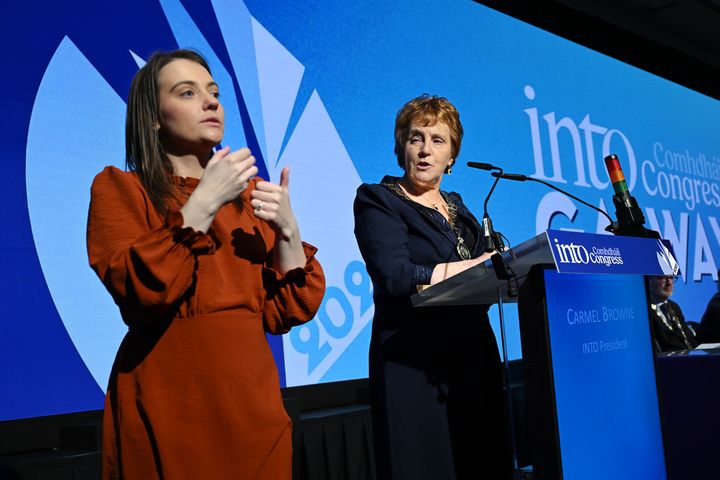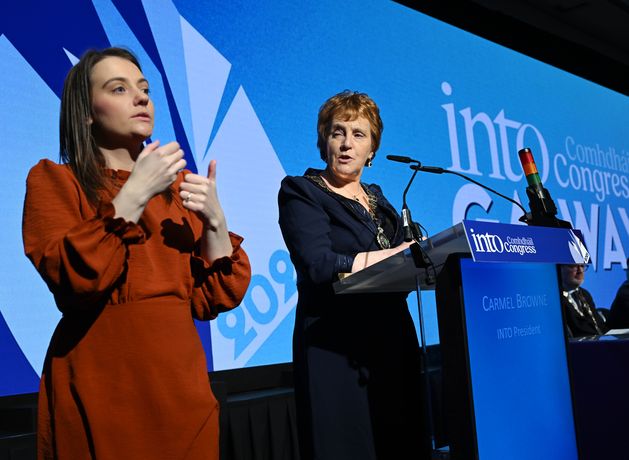
The INTO meeting in Galway heard that from September, primary schools will receive €224 per pupil towards operational costs for utilities, insurance and resources.
They said this amount is not nearly enough to enable primary schools to make ends meet, causing them to rely on parents and other members of the local school community.
A statement from the INTO said: “The funding shortfall of €162 per pupil compared to voluntary secondary schools places undue financial pressure on primary schools and highlights the need for a dramatic increase in the capitation grant to help schools manage their day-to-day budgets.”
Teachers called on the INTO to commission a comprehensive financial report to ascertain the true running costs of primary schools and to propose a new model for financing of schools.
In her opening address, INTO president Carmel Browne said the current situation “is simply not good enough”.
Before the arrival of Education Minister Helen McEntee at the conference today, delegates heard that school leaders are struggling to pay bills and keep schools going.
“Many school leaders feel acutely every single day the chronic underfunding of primary education in Ireland and although they work tirelessly to keep schools going, there comes a time when we must say the current system is just not sustainable,” Ms Browne told delegates yesterday.
She called on Ms McEntee to accept that the administrative burden on school leaders by the Department of Education has to stop.
“Let’s be clear, despite Ireland having one of the lowest levels of investment in primary education in the OECD, we are being asked to deliver a world-class education system on a shoestring budget. Many schools are relying on local fundraising just to cover basic costs like lights and heating.”
Addressing Ms McEntee directly, she said schools were “not looking for luxuries, just essentials”.
Ms Browne added: “One of the most pressing issues we face is the ever-growing demand for vital supports for children with an additional need.”
Ms McEntee is expected to respond to the issues when she addresses the conference today.
Separately, 80pc of veteran teachers believe they could not afford to enter the profession today because of income, contract, cost-of-living and workload issues.
The stark finding came in a survey of over 1,000 education professionals by the Teachers’ Union of Ireland (TUI) in advance of its annual conference in Co Wexford.
TUI president David Waters warned that the findings of the study are “alarming” for the sector, which has been in crisis over teacher recruitment and retention, burnout among staff due to stress and workload issues, and mounting concern over the impact of senior-cycle changes and the advent of artificial intelligence.
The study found that just 26pc of young teachers employed since 2015 received a full-hours contract upon initial appointment.
Some 78pc of teachers who entered the profession before 2015 admitted they could not afford to enter the profession today due to income and cost-of-living challenges.
A total of 1,038 TUI members were surveyed for the study between March 21 and April 11.
Mr Waters warned that the crisis facing the Irish education sector is escalating and needs urgent government action.
Last week, a major ASTI study highlighted alarming levels of burnout among school leaders because of excessive workload.
The TUI survey echoed the same findings.
“Some 89pc believe that bureaucratic or administrative workload deflects from their core role of teaching, while 91pc believe that this burden has increased since they began their career,” it said.
“A majority believe that such duties are not of benefit to teaching and learning in their schools.”
#Chronic #underfunding #means #schools #rely #parents #lights #teachers #warn







